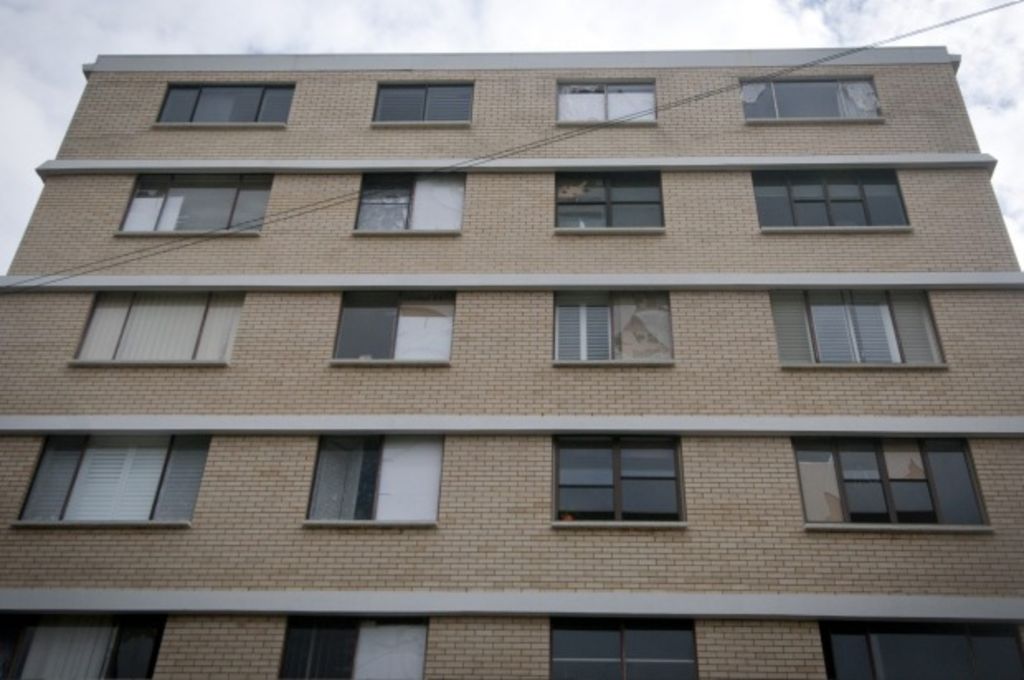Defects are the biggest concern for Australian apartment owners: report

Poor building quality and problems with construction are the top concerns of owners and others in the apartment sector, a new study has found.
The national survey on strata-titled property conducted by Queensland’s Griffith University, and shown exclusively to Domain, revealed that the unit owners questioned by the author, Professor Christopher Guilding, named building defects as their No. 1 challenge. It was also identified as the most important issue for strata lawyers, and in the top five by resident building managers.
As a result, Professor Guilding, of the Griffith Business School, is calling for a federal government inquiry about the issue.
“It is striking how strongly building defects comes through as the biggest concern,” said Professor Guilding, who will be releasing the results of the Inquiry Into Key Challenges In Australian Strata Title at the launch in September of the biennial national conference Strata and Community Title in Australia for the 21st Century.
“The qualitative survey was conducted across different states so I would have to say this is such a pervasive issue, it should be the subject of a federal government inquiry. Such a strong reaction from all the key players in the industry means this is of profound importance.”
One apartment owner in the survey claimed that poor building quality and defects in the strata sector are endemic across Australia, and could even be life-threatening.
“It needs to be recognised that defects are the issue (not quality),” the owner said. “The problems are often basic things like leaks into living areas, render and paint falling off after year 1 and imported – cheaper and not Australian Standard-compliant – glass imploding for unexplained reasons, and potentially causing personal death or injury.”
Another says: “Roofs that don’t leak are a human right. Yet building defects are rife across Class A and B developments nationwide. In part, this results from poor education and training structures in the building industry. So many areas of construction (wet area sealing membranes, gyprock) are performed by people without formal training or qualification. Inspection regimes are not actually designed to discover any but the most egregious faults.”
Among the reasons for the defects, apartment owners all identify developers who don’t intend to be around for the long term, as well as unqualified builders, the move to private certification of buildings, the reduction in consumer protection and weak regulation that makes it difficult for owners to seek, and secure, redress.
One particular problem, the survey found, was a new act passed in NSW in January, The Home Building Amendment Act, which reduced time limits for statutory claims to two years except for “major defects”.
The real difficulty with that, one owner respondent says, was: “Building defects may not be recognised in the early years of the building and may not be tackled in time for claims or rectification before problems get worse, for example water penetration.”
The survey asked 20 members of different groups within the strata sector to identify, and elaborate upon, what they see as the most significant challenges confronting strata title living and management. The Griffith University conference will debate the full report’s findings.
“I get a sense these problems are worse in Australia than overseas, so we need an inquiry to look into what’s happening elsewhere in the world that means they’re not getting this kind of volume of building defects,” said Professor Guilding, chairman of the conference, who’s been conducting research in the strata industry for many years.
“If the building industry aren’t getting it right the first time here, then the defects are very costly to rectify later, and it leads to a lot of problems for such a long period of time.”
Strata lawyers also came out strongly on the side of apartment owners, saying in the survey that remediation of defects is the single biggest problem in apartment living today, and likely to become bigger still as buildings age.
They also named as a major setback last year’s High Court ruling in a two-year case over building defects in a multimillion-dollar apartment complex in Sydney’s Chatswood that the owners corporation of serviced apartments could not sue the builder, Brookfield Multiplex, to recover the cost of fixing alleged defects in common areas.
“It has emphasised the difficulty for an individual unit owner purchasing into a scheme to pursue the builder of that lot with respect to defects,” another lawyer respondent told the survey.
The other top five issues identified by apartment owners included poor strata title management, low-quality executive committees of owners corporations or body corporates, the vested interests of developers in new developments and weak laws and their enforcement.
We recommend
We thought you might like
States
Capital Cities
Capital Cities - Rentals
Popular Areas
Allhomes
More







